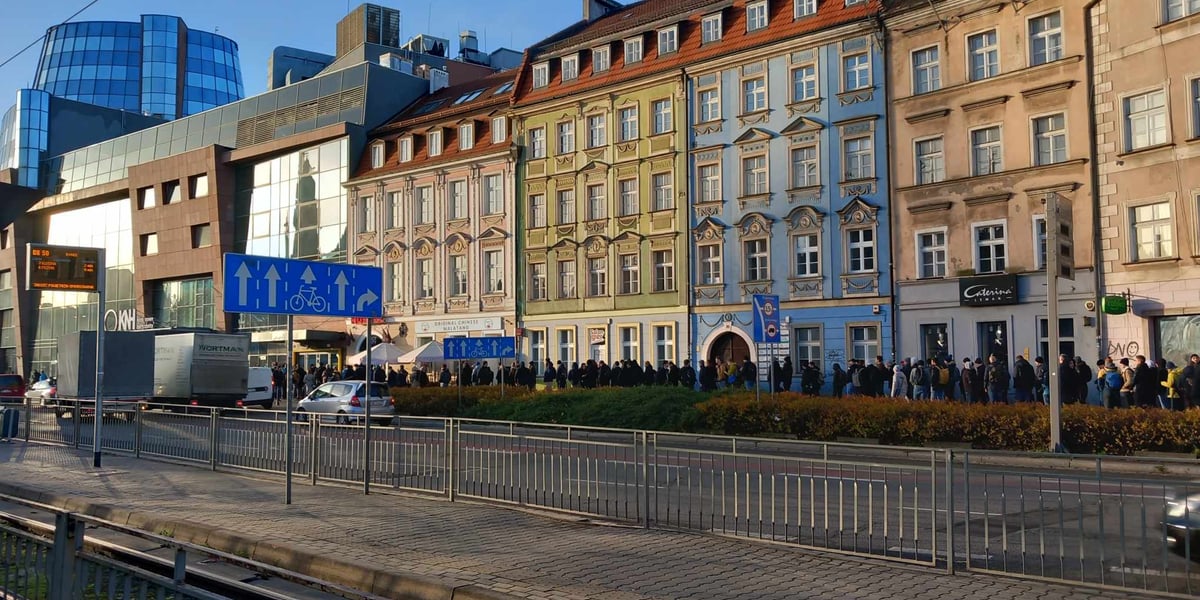My code::dive talk video is available: New Q&A
Two weeks ago, Bjarne and I and lots of ISO committee members had a blast at the code::dive C++ conference held on November 25, just two days after the end of the Wrocław ISO C++ meeting. Thanks again to Nokia for hosting the ISO meeting, and for inviting us all to speak at their conference! … Continue reading My code::dive talk video is available: New Q&A →
Two weeks ago, Bjarne and I and lots of ISO committee members had a blast at the code::dive C++ conference held on November 25, just two days after the end of the Wrocław ISO C++ meeting. Thanks again to Nokia for hosting the ISO meeting, and for inviting us all to speak at their conference! My talk was an updated-and-shortened version of my CppCon keynote (which I also gave at Meeting C++; I’ll post a link to that video too once it’s posted):
If you already saw the CppCon talk, you can skip to these “new parts at the end” where the Q&A got into very interesting topics:
- 44:48 Summary: Why 2024 has turned into a pivotal year for C++ (* transcript at bottom of this post)
- 47:00 Erroneous behavior in C++: What’s the run-time cost and can we opt out when needed?
- 48:00 My new paper proposing taking safety-related undefined behavior and turning it all off by default: I have a dream
- 51:00 This new ^^ reflection operator: Will it litter our code?
- 54:14 What do you think of evolving/extending C++ vs. directions like cppfront vs. C++ alternatives like Carbon?
Finally, I’m glad I got a chance to give this last answer to cap things off, and thanks again for the audience question that led to it:
- 57:55 Why I think the most impactful way I can contribute toward improving our society is through improving existing C++ code (** transcript at bottom of this post)
That morning, on our route while traveling from the hotel to the conference site, at one point we noticed that up ahead there was a long line of people all down the length of a block and wrapped around the corner. It took me a few beats to realize that was where we were going, and those were the people still waiting to get in to the conference (at that time there were already over 1,000 people inside the building). Here’s one photo that appeared in the local news showing part of the queue:

In all, I’m told 1,800 people attended on-site, and 8,000 attended online. Thank you again to our Nokia hosts for hosting the ISO C++ meeting and inviting us to code::dive, and thank you to all the C++ developers (and, I’m sure, a few C++-curious) who came from Poland and beyond to spend a day together talking about our favorite programming language!
(*) Here’s a transcript of what I said in that closing summary:
… Reflection and safety improvements as what I see are the two big drivers of our next decade of C++.
So I’m excited about C++. I really think that this was a turning point year, because we’ve been talking about safety for a decade, the Core Guidelines are a decade old, we’ve been talking about reflection for 20 years in the C++ committee — but this is the year that it’s starting to get real. This is the year we put erroneous behavior [in] and eliminated uninitialized locals in the standard, this is the year that we design-approved reflection for the standard — both for C++26 and hopefully they’ll both get in. We are starting to finally see these proposals land, and this is going to create a beautiful new decade, open up a new fresh era of C++. Bjarne [….] when C++11 came out, he said, you know, there’s been so many usability improvements here that C++11, even though it’s fully compatible with C++98, it feels like a new language. I think we’re about to do that again, and to make C++26 feel like a new language. And then just as we built on C++11 and finished it with C++14, 17, 20, the same thing with this generation. That’s how I view it. I’m very hopeful for a bright future for C++. Our language and our community continues to grow, and it’s great to see us addressing the problems we most need to address, so we have an answer for safety, we have an answer for simpler build systems and reducing the number of side languages to make C++ work in practice. And I’m looking forward to the ride for the next decade and more.
And at the end of the Q&A, the final part of my answer about why I’m focused on C++ rather than other efforts:
Why am I spending all this time in ISO C++? Not just because I’m some C++-lover on a fanatical level — you may accuse me of that too — but it’s just because I want to have an impact. I’m a user of this world’s society and civilization. I use this world’s banking system. I rely on this world’s hospital system. I rely on this world’s power grid. And darnit I don’t want that compromised, I want to harden it against attack. And if I put all my energy into some new programming language, I will have some impact, but it’s going to be much smaller because I can only write so much new code. If I can find a way to just recompile — that’s why you keep hearing me say that — to just recompile the billions of lines of C++ code that exist today, and make them even 10% safer, and I hope to make them much more than that safer, I will have had an outsized effect on securing our civilization. And I don’t mean to speak too grandiosely, but look at all the C++ code that needs fixing. If you can find a way to do that, it will have an outsized impact and benefit to society. And that’s why I think it’s important, because C++ is important — and not leaving all that code behind, helping that code too as well as new code, I think is super important, and that’s kind of my motivation.


















